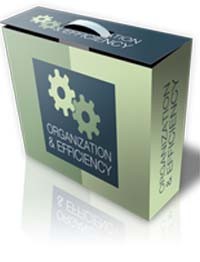
 License Type: Personal Use
License Type: Personal Use  File Size: 873 KB
File Size: 873 KB File Type: ZIP
File Type: ZIP
 SKU: 16942
SKU: 16942  Shipping: Online Download
Shipping: Online Download
Ebook Sample Content Preview:
Even if we are self-employed, we constantly work with others in the form of customers, colleagues, employees, and outsourcers. We can react in one of four ways: being passive, being aggressive, being manipulative, and being assertive.
Being passive often means waiting for others to take action before we move on a project. This leaves the fate of your project in the hands of others. The passive person has such low self-esteem that he either automatically agrees with others or even runs away.
Being aggressive usually means that we move without considering others' feelings or ideas, which can cause resentment. Aggressive behavior is competitive; the goal is to win over others.
Being manipulative means getting what we want through devious means and making others feel guilty. It is indirect aggression. Manipulative people fear exposure if they are direct and feel it's safer to control and manipulate rather than confronting and being rejected.
Being assertive involves having respect for the people we work with. It is rooted in high self-esteem and is most likely to give us the results we desire. We don't wait for others to act for us, we don't act without consideration for others when necessary, and we don't try to indirectly control and manipulate others. Instead, assertive people negotiate to reach win-win results.
It might surprise you to know that we all use all four patterns at times. These behaviors are established in us from an early age, and we may not be aware when we're using them. But with some awareness and determination, we can change these behaviors if we want to.







